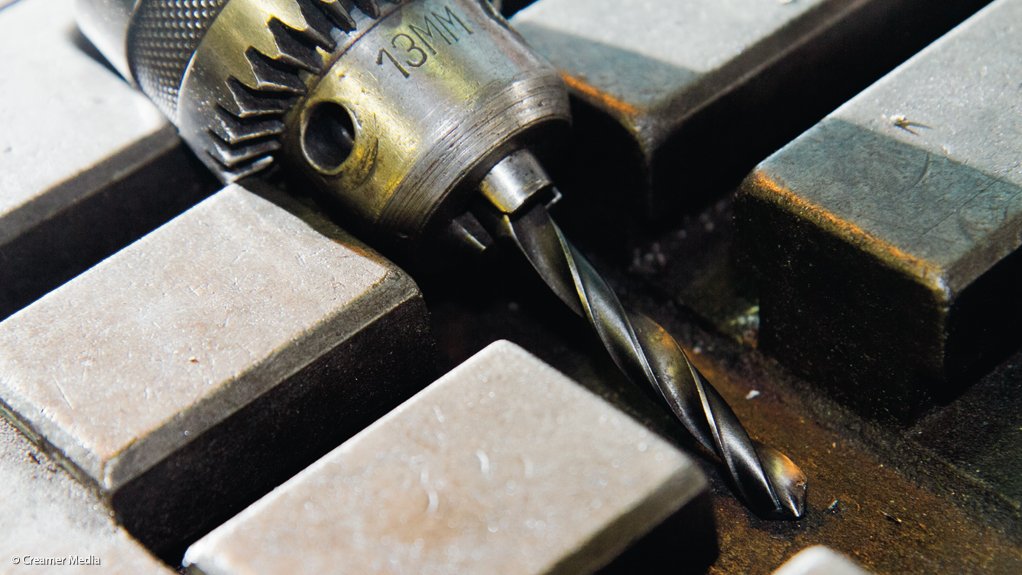Despite declining by 3.3 index points in December, the seasonally adjusted Kagiso Purchasing Managers Index (PMI) ended the year marginally above the neutral 50-point mark, at 50.2.
During the second and third quarters of 2014, the PMI languished below 50, but the average reading for the fourth quarter came in at 51.2 index points compared with an average of 48.2 for the first nine months of the year.
Kagiso Asset Management research head Abdul Davids said on Wednesday that the December index confirmed earlier expectations that the final quarter of the year would likely be the best quarter of 2014 for actual quarter-on-quarter manufacturing production growth.
He added that the two biggest-weighted subcomponents of the headline PMI, the business activity index and the new sales order index, both declined in December.
After rising substantially in November, the business activity index dropped by a “hefty” 7.7 points, which brought the indicator back below the neutral 50-point mark.
“This suggests that output is failing to gain traction despite a normalisation of domestic demand conditions after protracted strikes in the platinum and steel manufacturing sectors earlier in 2014,” he asserted.
He described the magnitude of the decline as “surprising” but noted that it was possibly owing to electricity load shedding and mandatory cutbacks by large industrial users of electricity supplied by utility Eskom.
The new sales orders index, meanwhile, fell to 52.6 in December from 55 index points in November.
Davids noted that the global environment was not supportive of strong external demand, reflected in the December Eurozone manufacturing PMI, which remained subdued at 50.6 index points.
In China, readings confirmed the fragility of demand as the official PMI estimate slipped to 50.1.
“As expected, the price index moderated for a third consecutive month, falling to its lowest level since July 2012 and suggesting a significant slowdown in the rate of input cost increases.
“This moderation was mainly owing to the sharp drop in the international oil price,” he outlined.
Encouragingly, the index measuring expected business conditions in six months’ time recovered from a slump in November, and the PMI leading indicator edged above one for the first time in 2014, suggesting an acceleration in production going forward as new sales marginally outstripped current inventories.
Commenting on the PMI, banking group BNP Paribas economist Jeffrey Schultz believed weak global and domestic demand conditions, coupled with local electricity supply problems, hamstrung activity in the manufacturing sector late last year, were driving the index’s slump.
He added, however, that a “most encouraging” aspect of the latest PMI figures was the fact that the PMI price index continued to moderate, moving to 63.2 in December from 67.8 in November and marking the lowest level in the subindex since July 2012.
Lower input costs through the sharp fall in oil prices were “undoubtedly” driving this improvement.
“The bottom line is that the December manufacturing PMI figures are disappointing and highlight an industry that remains stymied by weak domestic activity levels, a softer demand outlook from some of South Africa’s key trading partners, the more structural constraints of electricity supply and ongoing industrial action.
“We think these factors are all likely to weigh on the ability of local manufacturers to rapidly step up production in the near term,” he noted.
The bank was, however, encouraged by the fact that the PMI’s leading indicator had climbed back into positive territory for the first time in a year.
“Lower oil prices, if sustained, should also act as a welcome relief to manufacturing input costs in 2015 and help to soften the blow against a backdrop of higher administered prices and above inflation wage increases,” said Schultz.
EMAIL THIS ARTICLE SAVE THIS ARTICLE
To subscribe email subscriptions@creamermedia.co.za or click here
To advertise email advertising@creamermedia.co.za or click here











